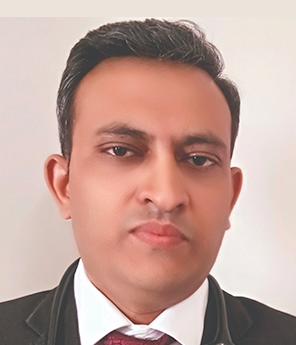
A multicenter retrospective cohort study on management protocols and clinical outcomes after ABO-incompatible kidney transplantation in India
Vivek Kute1, Vivek Pathak2, Deepak Ray3, Anil Bhalla4, Suraj Godara5, Feroz Aziz6, Vijay Kher7, Umapati Hegde8, Hari Shankar Meshram1, ABOI collaboration group India1,2,3,4,5,6,7,8.
1Nephrology, IKDRC, Ahmedabad, India; 2Nephrology, Kovai Medical Center and Hospital, , Coimbatore, India; 3Nephrology, RNTIICS, Kolkata, India; 4Nephrology, Sir Ganga Ram Hospital, Delhi, India; 5Nephrology, MGM, Jaipur, India; 6Nephrology, Aster MIMS and IQRAA Hospital, Kozhikode, India; 7Nephrology, Medanta Hospital, Gurugram, India; 8Nephrology, MPUH, Nadiad, India
ABOi collaboration study group India.
Background: There is no robust evidence-based data for ABO-incompatible kidney transplantation (ABOiKT) from emerging countries.
Methods: Data from 1759 living donor ABOiKT and 33 157 ABO-compatible kidney transplantations (ABOcKT) performed in India between March 5, 2011, and July 2, 2022, were included in this retrospective, multicenter (n = 25) study. The primary outcomes included management protocols, mortality, graft loss, and biopsy-proven acute rejection (BPAR).
Results: Protocol included rituximab 100 (232 [13.18%]), 200 (877 [49.85%]), and 500 mg (569 [32.34%]); immunoadsorption (IA) (145 [8.24%]), IVIG (663 [37.69%]), and no induction 200 (11.37%). Mortality, graft loss, and BPAR were reported in 167 (9.49%), 136 (7.73%), and 228 (12.96%) patients, respectively, over a median follow-up of 36.3 mo. In cox proportional hazard model, mortality was higher with IA (hazard ratio [HR]: 2.53 [1.62-3.97]; P < 0.001), BPAR (HR: 1.83 [1.25-2.69]; P = 0.0020), and graft loss (HR: 1.66 [1.05-2.64]; P = 0.0310); improved graft survival was associated with IVIG (HR: 0.44 [0.26-0.72]; P = 0.0010); higher BPAR was reported with conventional tube method (HR: 3.22 [1.9-5.46]; P < 0.0001) and IA use (HR: 2 [1.37-2.92]; P < 0.0001), whereas lower BPAR was reported in the prepandemic era (HR: 0.61 [0.43-0.88]; P = 0.008). Primary outcomes were not associated with rituximab dosing or high preconditioning/presurgery anti-A/anti-B titers. Incidence of overall infection 306 (17.39%), cytomegalovirus 66 (3.75%), and BK virus polyoma virus 20 (1.13%) was low. In unmatched univariate analysis, the outcomes between ABOiKT and ABOcKT were comparable.
Conclusions: Our largest multicenter study on ABOiKT provides insights into various protocols and management strategies with results comparable to those of ABOcKT.
The authors appreciate the support of Dr. Stefan G. Tullius (Boston, USA) in reading and editing the manuscript for publication (DOI: 10.1097/TP.0000000000004789).
